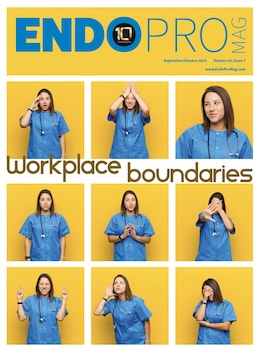Researchers and doctors have struggled with the place of “adjuvant,” or after-surgery, chemotherapy for patients with early-stage colon cancer, even for cancers deemed high risk. Now researchers at the University of Illinois at Chicago have identified a link between adjuvant chemotherapy use in stage 2 colon cancer and enhanced survival — independent of a patient’s age or risk, or even of the type of chemotherapy used.
The results are reported in the journal Cancer.
The American Cancer Society estimates that over 95,000 Americans will be diagnosed with colon cancer this year, the third-most frequent cancer diagnosis in men and women in the U.S. It is the second-leading cause of cancer death.
Adjuvant chemotherapy has been shown for years to benefit patients with advanced colon cancer. But its usefulness for stage 2 colon cancer patients is not known, and current clinical guidelines only suggest that doctors inform stage 2 patients whose cancer is high-risk and likely to recur after surgery about this treatment option.
“The findings of this research are thrilling, and some not entirely surprising,” says lead researcher Dr. Ajay Maker, associate professor of surgery in the UIC College of Medicine and director of surgical oncology for the Advocate Creticos Cancer Center. “For decades, research has encompassed, but not concentrated on, stage 2 colon cancer patients.”. This research, examining the most extensive cohort to date of patients with stage 2 colon cancer, aimed to further understand how adjuvant chemotherapy works when treating patients struggling with this type and stage of cancer.
Maker and his coworkers examined health data for 153,110 stage 2 colon cancer patients in the National Cancer Data Base. Patients who had adjuvant chemotherapy lived longer — occasionally years longer — than those who did not.
“Absolutely, we were hoping to observe differences in the data,” Maker said. “But to detect a clinically meaningful association with overall survival in all subgroups of patients, including low-risk patients, is significant and highly relevant to future studies on the potential application of adjuvant chemotherapy as an agent for treatment of stage 2 colon cancer,” he said.
Maker explained that any look-back study of treatment and effect has limitations.
We need to be cautious when searching for associations in the past,” Maker said. “But our study confirms the necessity of prospective studies to determine the particular subgroups of stage 2 colon cancer patients who will benefit most from the application of adjuvant chemotherapy.
Co-authors on the research include Dr. Leigh Casadaban, Garth Rauscher and Sally Freels of UIC and Dr. Mebea Aklilu and Dana Villenes of Advocate Illinois Masonic Medical Center.
This study was supported in part by the National Cancer Institute, one of the National Institutes of Health, under grant K08CA190855.





